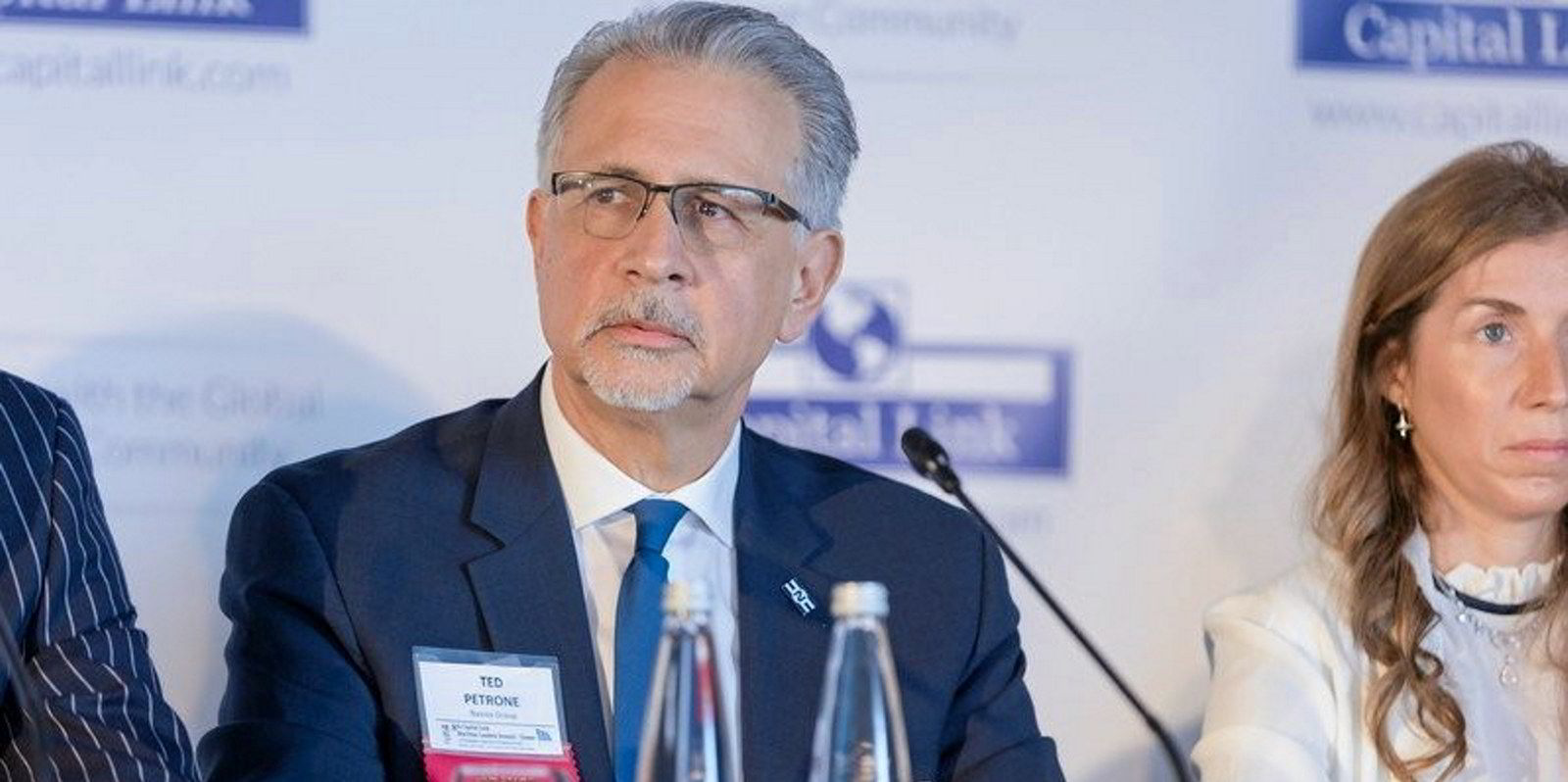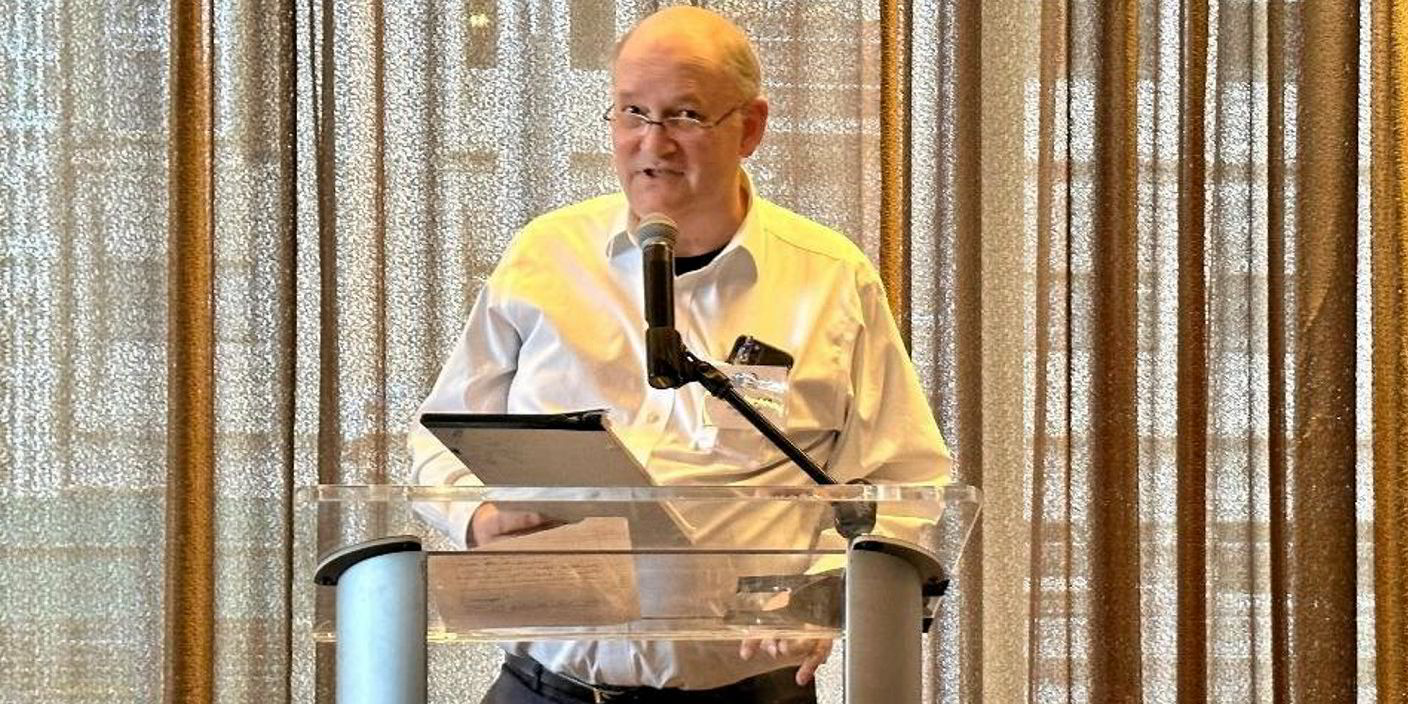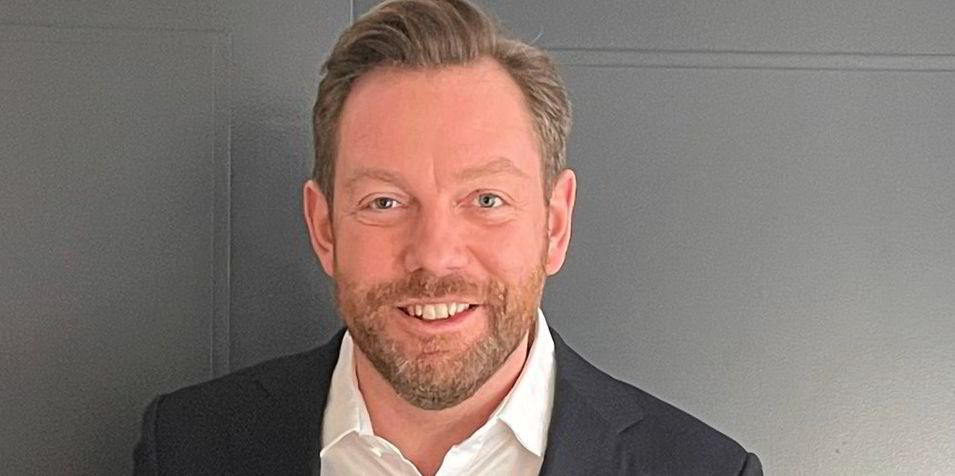The new Carbon Intensity Indicator (CII) rules are saving shipping from itself, Navios Maritime Partners’ Ted Petrone said.
The vice chairman at the diversified shipowner said the market overbuilds when the market is strong, tanking earnings once all the new ships hit the water.
But a lack of clarity around the new rules was creating uncertainty in the market, preventing owners from building.
“I think CII will decarbonise the fleet,” he said during a shipowners’ panel at the shipping conference of the Hellenic American and Norwegian American chambers of Commerce Shipping Conference in New York on Tuesday.
Petrone pointed to the VLCCs sector, where there are 24 ships set to hit the water this year and one next year.
He added that the industry can get a quarter of the way to net zero with different hull shapes, paints and other design elements “but we’re not going to get there until there’s a double leap in technology and we come up with the next fuel”.
“I think CII has saved us from ourselves,” Petrone said. “We’re not overbuilding because we can’t overbuild.”
Petrone’s praise for the measure — which rate ships on their emissions and could ban poor performing ships from trading — was rare, with many in the industry decrying potential unintended consequences for the global fleet.
On the issue of environmental, social and governance issues more broadly, Ridgebury Tankers chief executive Robert Burke said the world was being forced to confront how much it costs to get to net zero emissions.
“The world is getting warmer, the carbon should not be in the air and it should be taken out,” he said.
“The benefit that cheap energy has brought for a long time … has been phenomenal and I think the world has been afraid to confront how much that’s going to cost.”
He agreed with Petrone that new fuels were needed.
“The challenge is huge. Unfortunately, rinsing out your yogurt cup in your 10,000 square foot house in Greenwich and driving it to the recycling plant in your Range Rover isn't going to do it,” he asid.
“I sound cynical, but I think the world in general and the politicians severely lie to the general public about what it’s going to cost to do this.
“That’s the challenge. How do the scientists and the politicians and the people in the know, like we are, going to come clean to the public [about the decarbonisation costs]?”





